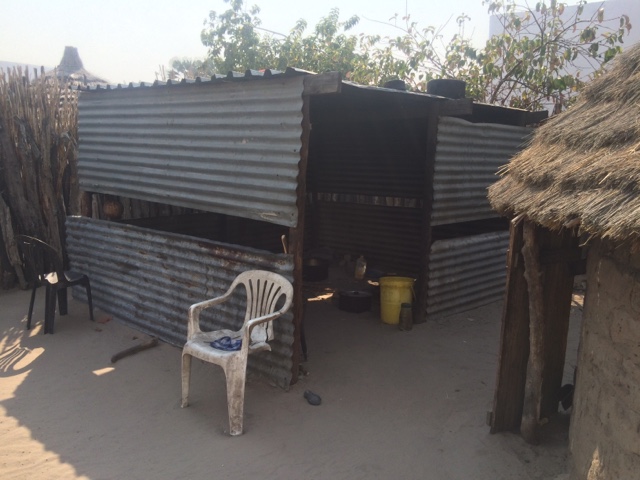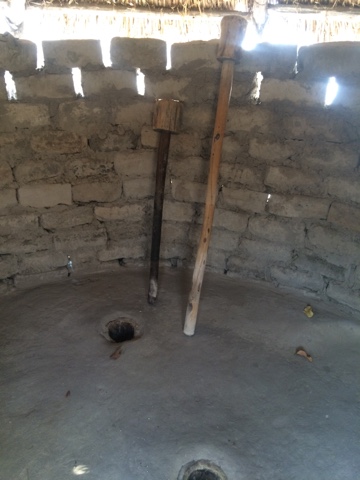Hi all! I moved up north last weekend to a village called Okaku. I'll be here for three more weeks! I'm staying on a traditional homestead/compound with a Namibian family. There are about ten family members who live on the compound (this number increases to ~17 on the weekends). I have a host grandmother, 23 year old host sister, 20 year old host brother, 10 year old sister, 4 year old brother, and a 3 year old sister. I also have several host uncles! The family is so nice; I feel really lucky to have been matched with them. As I said, the compound is traditional, which means no electricity! I'm quickly adapting to this lifestyle and enjoying the simplicity that comes along with it. The night skies here are absolutely breathtaking.
I had some pretty serious culture shock when I got here on Sunday and experienced many new things, from giant spiders to different sanitation standards to a lack of electricity! However, because of how awesome my host family is, they've helped me to adapt very quickly. I'm really enjoying things here and feel like I understand everyone's roles around the house and how I can help out.
There are 4 other PCTs in Okaku with me and all five of us have been observing at Nengushe Junior Secondary School, which is for grades 8-10. They observation has been very helpful and we've learned a lot about things like Namibian school culture, classroom management, and how to keep your learners (what students are called in Namibia) engaged. In terms of classroom culture, Namibian learners are used to a lot less praise than American students. Also, most teachers expect their learners to stand up when they answer a question. When a teacher asks a question and learners raise their hands to be called on, they snap in order to get the teacher's attention and to try to be called on. All of these are big differences from American education culture.
Well, my battery is quickly draining and there's no outlets to be had on the compound, so that's all I'm writing for today! I'll let the pictures do most of the talking this post. Thanks for reading!
My room-- concrete walls and floor, tin roof, and a window! No dresser or anything, so my apologies for the clutter!
A few of the traditional huts on the compound used for storing millet ("Mahangu"-- the most common grain here), oshikundu (fermented millet drink), and many other items.
The traditional kitchen. Used daily for cooking breakfast, lunch, and dinner-- all over an open fire!
This hut is very interesting. It's where the millet is ground into flour, which is used to make a thick porridge called oshithima. We eat oshithima every night! To grind the millet, you pour small amounts into the holes in the ground and use the heavy sticks you see in the background and repeatedly pound them into the holes. It's exhausting work that has to be done often, as we eat oshithima everyday! It takes about 40 minutes to an hour to grind enough for dinner.








Love the photos! Especially of your room and familiar items that I recognize, only they are living their African lives now! Is fermented millet drink like kombucha?! ;)
ReplyDeleteAnne wave! There are several items I have here that you know very well as I also brought them along on I4K and then of course to our apartment too :) and unfortunately oshikundu/ontaku isn't much like kombucha... But it'll have to do! :) miss you! Throw back a kombucha for me!
Delete